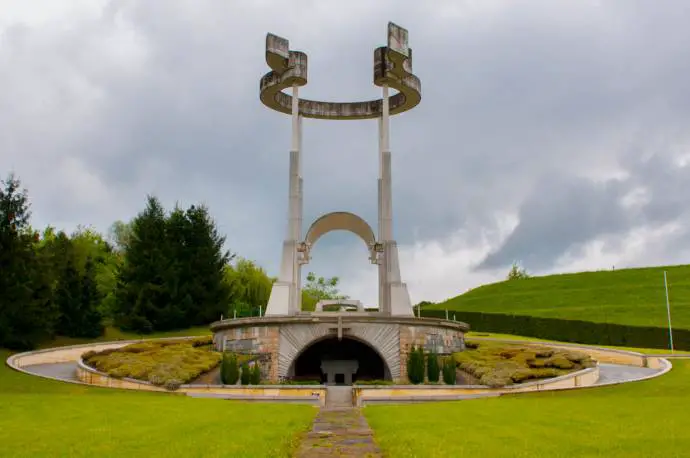After a mass was said by retired Celje Bishop Stanislav Lipovšek, the keynote address was delivered by Cukjati, the former parliament speaker who now heads the conservative Assembly for the Republic.
According to the former MP of the centre-right Democrats (SDS), the fateful political exclusion, which was marked out already in 1941, reached its new peak in the election year 2018.
"All parties on the left rallied only around the hatred to those who have declared them in a way as internal enemies, because they promote the Slovenian nation and respect of western European culture," he added.
Cukjati said that people were not only attending the ceremony to pay respects to victims of Communist terror, but to resist against any attempt of further concealment of truth and crime committed against the Slovenian nation.
Among the victims the Teharje Memorial Park pays respects to were members of the Home Guard, a militia that collaborated with the Nazis; soldiers; civilians; and refugees from Croatia and Serbia apprehended by the Allies in May 1945 in the northern Koroško region as they were fleeing north.
The Allies turned them over to the Partisans, who brought them to the Teharje barracks, a facility formerly used by the Nazi Germany military.
In the subsequent two months, some 5,000 people were killed without a trial on several locations nearby Teharje, including the notorious Huda Jama mine shaft near Laško.
It took a long time until the locals dared to speak about what had happened. Many mustered the courage to speak up only after Slovenia gained independence in the early 1990s.
A memorial park was inaugurated at the site of the former barracks in 2004.






